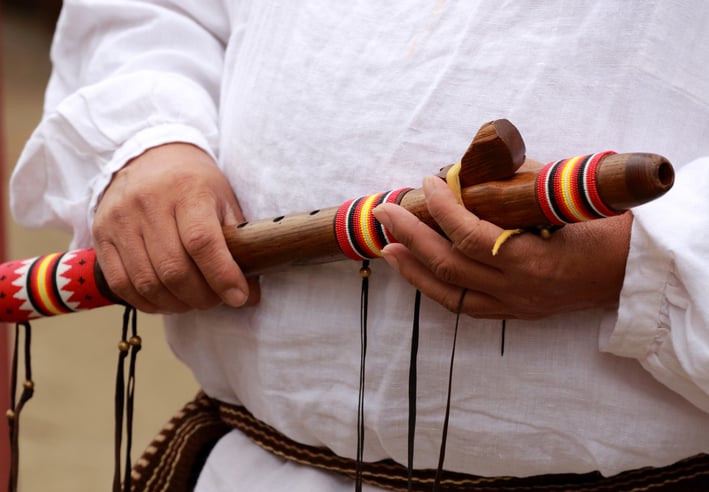
Last month in Talequah, Oklahoma, the Cherokee Nation renewed a law aimed at preserving the Cherokee language.
At an official ceremony, Principal Chief Chuck Hoskin signed an updated and permanent renewal of The Durbin Feeling Language Preservation Act, on behalf of the Cherokee Nation. The act protecting Indigenous languages was originally passed in 2019.
Only about $18 million is allocated annually to preserve the Cherokee language.
At the official signing, Chief Hoskin addressed reporters “…we are undertaking this mission for ourselves, but we’re reminding the United States that we need to commit resources to this great mission of restoration, repair and justice for Native peoples in this country.” He added “Not only in the Cherokee Nation, but across Indian country.”
Originally declared as a “national emergency” in 2019, the bill still outlines preservation and revitalization efforts as extremely time sensitive and urgent. It will continue to secure funding for Cherokee language immersion classes in grades K-8 for some schools in the state of Oklahoma.
According to the Cherokee Nation, “There are an estimated 2,000 first language Cherokee Speakers, with several thousand more, considered beginner or proficient speakers through the tribe’s language programs. The Cherokee language is considered a Class IV language in its degree of difficulty in terms of spoken form. The Cherokee syllabary is the written form of the language. It is not an alphabet, but instead contains 85 distinct characters that represent the full spectrum of sounds used to speak Cherokee—one character for each discrete syllable.”
Meanwhile in Cherokee, North Carolina, a ribbon cutting ceremony was held on Feb 16 to officiate a new building dedicated to preserving the Cherokee language.
Over 200 people gathered to celebrate the New Kituwah Academy in Cherokee by listening to Cherokee-language speeches from tribal elders and musical performances from younger members of the Cherokee Nation.
The new academy building will act as a hub for language revival, becoming the first significant capital investment toward that goal on the Qualla Boundary since it first opened in 2009.
Roger Smoker, chairman of the Cherokee Speaker’s Council, explained that the new premises will be a place for Cherokee language learners to gather and finesse their skills, where the Cherokee Speakers Council can meet and where the Speakers Consortium can unite all three Cherokee tribes.
He said “This new building will house the second language speakers, and it will benefit our communities and represent the committed values of the Eastern Band of Cherokee Indians,”
New Kituwah offers Cherokee language immersion education for children from birth through to the higher elementary school grades. The tribe has also launched a paid, adult learning program to address situations whereby young language learners may not be able to interact with their parents. This may be due to generational gaps in learning from colonization and language bans. The paid language classes are intended to take the place of a full time job.
Howard Paden, executive director of the Cherokee Language Department for the Cherokee Nation of Oklahoma said “Our language is sacred,” — “God made that, and we can have the biggest buildings, the biggest casinos, but if we don’t have the very essence of who we are— when we speak in that form, there’s words that English doesn’t have. There’s concepts that English doesn’t have.”





